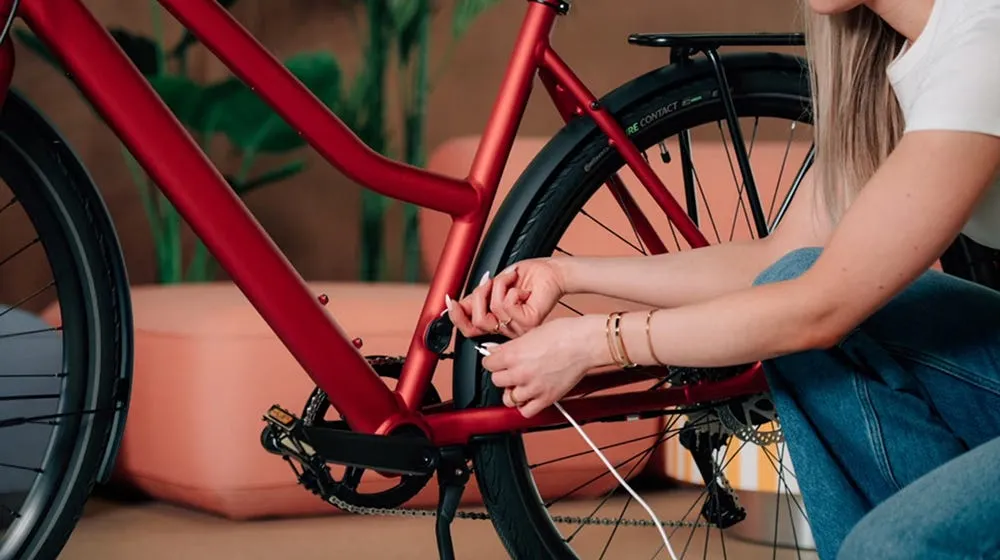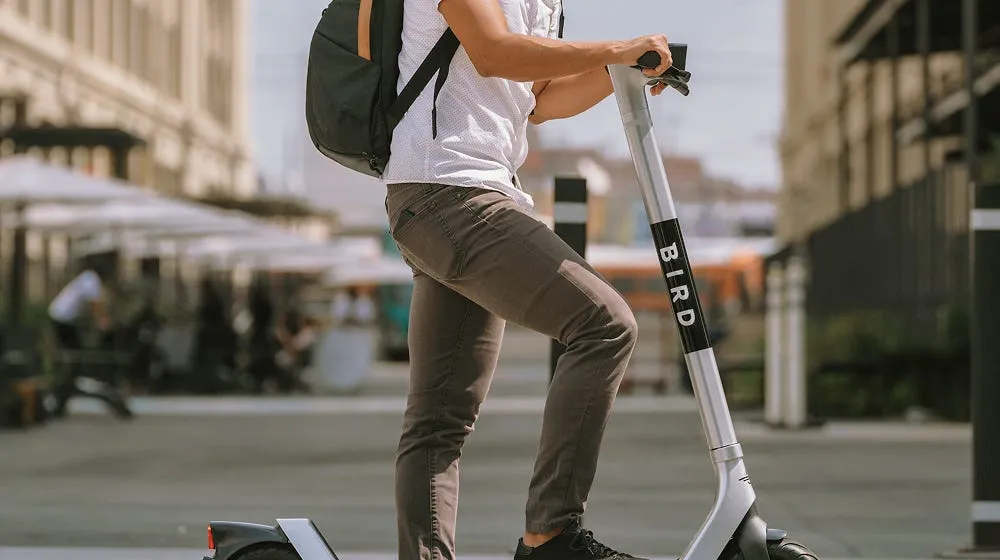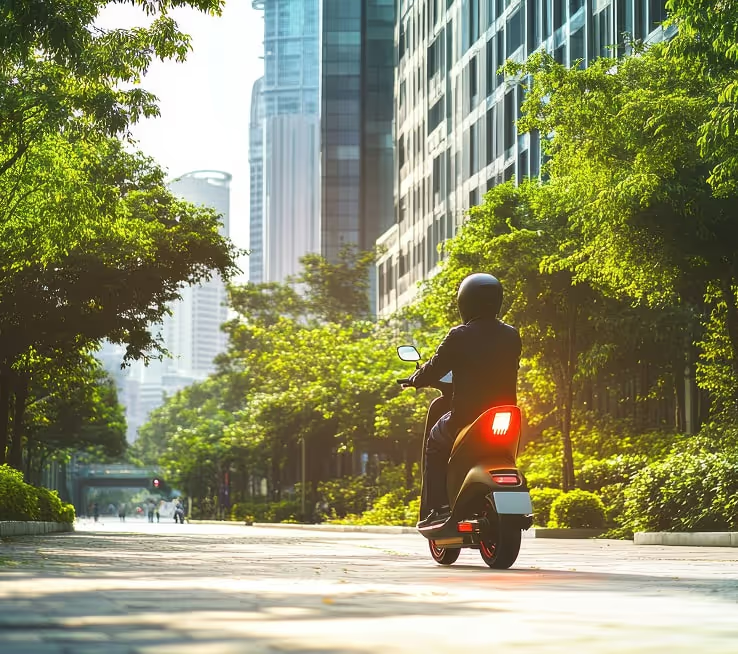The tariffs are here. Now what?

Economic anxiety is setting the tone across the mobility landscape this week. With tariffs looming and policy uncertainty growing, automakers are desperately trying to move inventory and manufacturers are pulling the plug on billions in EV and battery investments. The future feels fragile—even global trade routes are shifting.
And yet, innovation hasn’t hit the brakes. Ampler developed an e-bike that can charge via USB. Archer envisions a day when flying taxis are as cheap as Uber. And Virginia has come up with a brilliant way to stop (some) people from speeding.
We're also just 3 weeks away from CoMotion MIAMI '25. Join mobility’s most influential innovators and thought-leaders. Snag your pass now!
What you need to know
The best time to buy a car is now: If you happen to be in the market for a new vehicle, you’re in luck: some automakers are dropping prices in hopes of moving product before the tariffs hit and force them to hike them. Ford, Stellantis and Nissan announced price cuts on certain models, while Hyundai and Toyota assured customers they would at least avoid raising prices for a couple months.
Duffy rides the subway to hurt the subway: U.S. Transportation Secretary Sean Duffy invites reporters to follow him taking a trip on the New York City subway alongside Mayor Eric Adams. Unfortunately the photo op had nothing to do with promoting public transit –– Duffy was there to denounce the congestion pricing toll that is raising desperately-needed money for New York’s embattled subway system and –– get this –– reducing congestion!

Fast-charging e-bikes: Estonian e-bike company Ampler is the first to introduce a bike that can be charged with a USB-C port, cutting charging time down to about three hours from the typical six. In fact, you can even use that port to charge any other gadgets while you’re on the road.
Access Granted: The Future of Rider's Choice, with Uber Transit
Across the country, transit agencies face a dilemma: how to provide reliable, safe, and equitable service for individuals who rely on ADA paratransit, while keeping costs low?
In this episode, CoMotion's Nick Perloff-Giles sits down with Dmitriy Vanchugov, Head of Partnerships at Uber Transit, alongside Spare Labs Co-Founder & CEO Kristoffer Vik Hansen, Stephanie Doughty (MV Transportation), and David Hatch (MBTA) to explore all the different aspects of ‘Riders’ Choice’, an innovative approach to paratransit that allows riders to flexibly choose between conventional paratransit vehicles and ridehail. (Plus an exclusive CoMotion MIAMI discount for listeners!)
Disclaimer: this episode was produced in partnership with Uber Transit, whose support of CoMotion's programming makes conversations like this possible.

Virginia cracks down on mega-speeders:: Virginia enacts a law allowing judges to require the installation of speed-limiting devices for those convicted of exceeding 100 miles per hour. The “speed governors” are meant to automatically prevent speeding beyond 10 mph over the limit. This of course begs the question: why are cars able to go far over the speed limit in the first place?
Crypto-Transit: Toulouse, France becomes the first city in Europe –– perhaps the world? –– to enable transit payment with cryptocurrency, courtesy of transit operator Tisséo.
Manufacturers cancel billions of battery investment: An analysis by Atlas Public Policy shows that more EV and battery projects were canceled in the first quarter of 2025 than in the previous two years. Two notable cancelations are a $1.2 billion battery plant in Arizona and a $1.2 billion plant in Georgia that would have made thermal barriers for batteries. Manufacturers say uncertainty about public policy –– tariffs, tax credits, clean energy regs –– are prompting them to pull back investment.
A flight as cheap as an Uber? An executive for Archer Aviation, which plans to launch commercial air taxi service in Los Angeles in the next two years, envisions the service eventually being “competitive with a taxi or a ride-hail.” Well, perhaps if L.A. implements congestion pricing for cars.'
Join us in The Magic City!
We’re three weeks away from CoMotion MIAMI '25. Connect with innovators, public and private sector leaders, global mayors, VCs and the hottest startups.
CoMotion MIAMI is not just a conference — it’s a launchpad for what’s next in urban transportation — and where vision meets implementation. Join a growing community making a real impact on how people and goods move around our cities.
Latest attendees include: Beep, City of Long Beach, City of Miami, City of Orlando, Connecticut DOT, Circuit, Cities Today, FIFA World Cup 2026, Aeroports de Paris, INIT Innovations in Transportation, it's electric, LACI, LADOT, Leitner-Poma, Lyft, Moovit, MobilityVC, Miami-Dade Innovation Authority, Palm Beach TPA, REGENT, Refresh Miami, SFRTA (Tri-Rail), Serve Robotics, Swyft Cities, Transit Alliance, Transit Unplugged, Toyota, Uber Transit, U.S. Bank, Visa, WSP, Zero Emissions Transit, Zoox — and many more!

No scooters for the NFL draft: The village of Ashwaubenon, Wis., where the Green Bay Packers’ “Titletown District’ is located, nixes allowing Bird scooters in town for the NFL draft, which is expected to bring 250,000 to northeast Wisconsin later this month. Among other things, the village officials weren’t convinced that micromobility would jive well with what they expect to be a hard-drinking event. Bird has operated in the city of Green Bay, however, since 2021.
The Danes enter the Canal: Danish shipping company AP Møller-Maers has acquired a railway connecting the ports at both ends of the Panama Canal. The railway has become an alternative route for shipping goods when drought has limited access to the canal itself. The railway was previously jointly owned by two firms, one American and one Canadian. It would seem to be a setback for President Trump, who has been talking about reasserting U.S. control over the canal. Is this Denmark’s response to Trump’s talk of taking Greenland?
What we're reading

Where batteries go to die: The BBC explores the lifecycle of EV batteries, highlighting their second-life applications in stationary energy storage and the complexities of recycling valuable materials like lithium, cobalt, and nickel.

